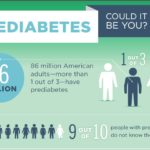Statins, a class of drugs that lower cholesterol in the blood, are prescribed to reduce the incidence of cardiovascular disease like heart attacks and strokes. Statins are very commonly used medications worldwide. According to a study from University of Queensland, older Australian women taking statins may be at risk for a significantly increased risk of developing diabetes.

Half of Older Women Over 75 are Most Susceptible
Dr. Mark Jones, a researcher on the study said the risk of diabetes was 50 percent higher for women over 75 that were on high doses of the drug, and that figure drops down to 33 percent higher for older women taking lower doses of statins.
Statins are drugs prescribed to patients at increased risk of heart attacks and strokes, and they do this by lowering blood cholesterol levels. Clinical trials on statins and their health effects have mainly focused on men over age 40, and there is little scientific data on the effects on older women until this new study. Research Study
UQ School of Public Health researcher Dr Mark Jones said women over 75 faced a 33 per cent higher chance of developing diabetes if they were taking statins.
“Statins are highly prescribed in this age group but there are v few clinical trials looking at their effects on older women. The vast majority of research is on 40- to 70-year-old men. What’s most concerning was that we found a ‘dose effect’ where the risk of diabetes increased as the dosage of statins increased. Over the 10 years of the study most of the women progressed to higher doses of statins. GPs and their elderly female patients should be aware of the risks. Those elderly women taking statins should be carefully and regularly monitored for increased blood glucose to ensure early detection and management of diabetes.”Dr Jones said.
The research was based on prescription and survey data from 8372 women born between 1921 and 1926 who are regularly surveyed as part of the Women’s Health Australia study (also known as the Australian Longitudinal Study on Women’s Health).
The research is published in Drugs and Ageing.
Source: https://www.eurekalert.org/pub_releases/2017-03/uoq-owt031517.php




